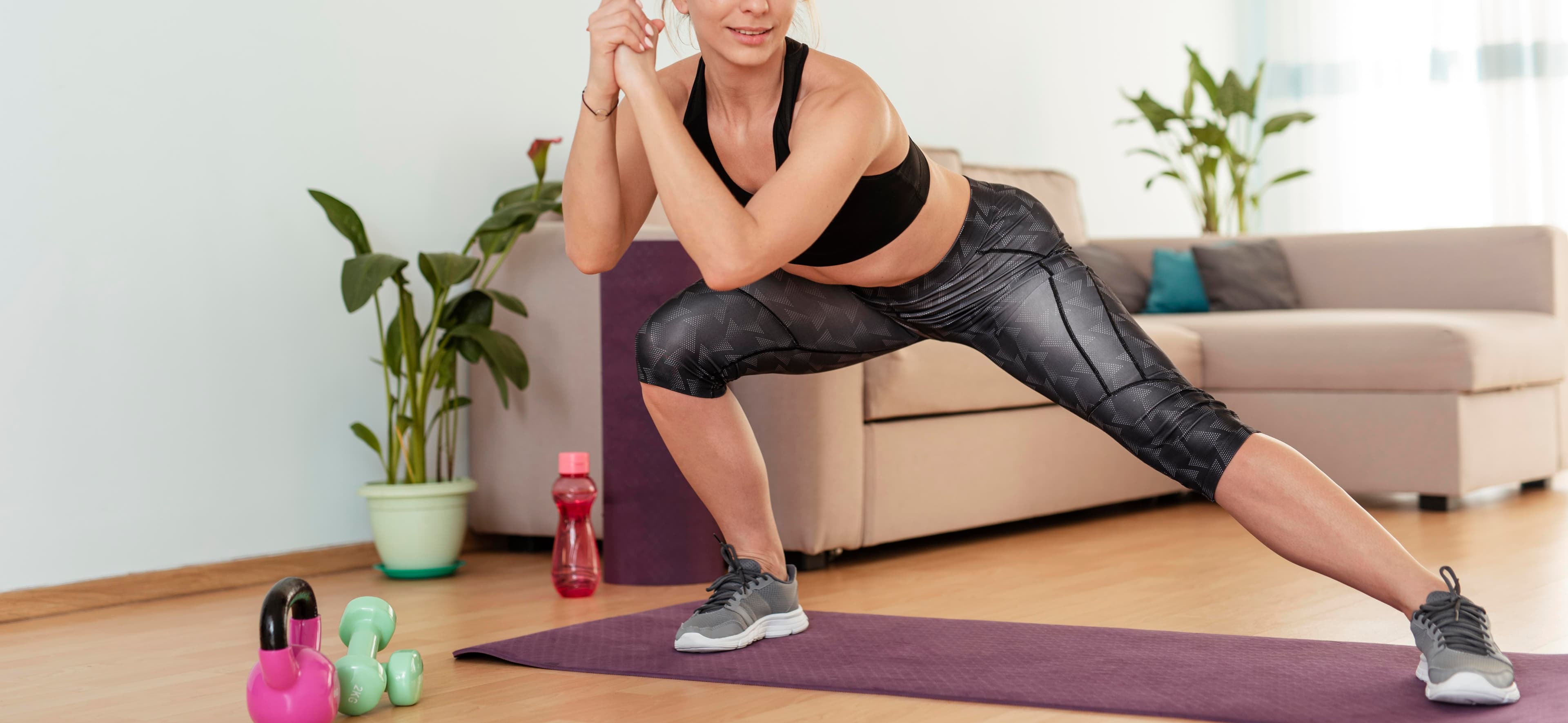Pros and Cons of Creatine for Females: A Comprehensive Guide

MyFitnessCoach
January 15, 2025
Creatine is one of the most popular and researched supplements in the fitness industry. Known for its ability to improve athletic performance, it’s no surprise that many women are curious about how creatine can benefit their health and fitness goals. However, like any supplement, creatine has its pros and cons, especially for females.
In this article, we’ll break down the science behind creatine, its advantages, potential drawbacks, and how women can safely incorporate it into their fitness routines.
Pros of Creatine for Females
1. Improved Strength and Power
Creatine is well-known for increasing strength and power output during resistance training. For women, this means lifting heavier weights, performing more repetitions, and building lean muscle over time.
2. Enhanced Endurance
While creatine primarily benefits short, intense efforts, studies suggest it can also improve endurance for prolonged activities by enhancing energy availability.
3. Faster Recovery
Creatine reduces muscle cell damage and inflammation after workouts, helping women recover faster. This is particularly beneficial for women who follow rigorous workout schedules.
4. Increased Lean Muscle Mass
Creatine encourages muscle hydration, giving muscles a fuller appearance and supporting muscle growth. This helps women achieve a toned and strong physique.
5. Cognitive Benefits
Emerging research shows creatine may improve brain function, memory, and focus. This is a bonus for women juggling busy schedules or experiencing mental fatigue.
6. Hormonal Compatibility
Unlike some supplements that may interfere with female hormones, creatine is safe and doesn’t disrupt hormonal balance.
7. Easy to Use
Creatine is available in various forms, including powders and capsules. It’s tasteless, mixes well with most drinks, and fits seamlessly into any diet.
Cons of Creatine for Females
1. Water Retention
One of the most common side effects of creatine is water retention. Some women may notice slight weight gain or bloating, as creatine draws water into the muscles. However, this is temporary and not actual fat gain.
2. Potential Digestive Issues
In some cases, creatine can cause digestive discomfort, such as bloating, diarrhea, or stomach cramps. Starting with a smaller dose can minimize these effects.
3. Not Effective for Everyone
While most women benefit from creatine, some may not respond to the supplement due to genetic factors. This means they may not experience significant performance improvements.
4. Misconceptions About Bulking
Many women worry that creatine will make them look bulky. While it does support muscle growth, it won’t lead to excessive bulk unless combined with a high-calorie diet and specific training.
5. Overuse Risks
Taking more creatine than recommended won’t enhance results and could strain the kidneys over time. Sticking to the recommended 3-5 grams daily is essential for safety.
6. Requires Consistency
For creatine to be effective, you must take it consistently. Women who struggle with routine supplementation may not see the full benefits.
Who Should Consider Creatine?
Creatine can be beneficial for women pursuing various fitness and health goals:
- Strength Training: Women focused on lifting weights or increasing power.
- Endurance Athletes: Those participating in sports like running or cycling.
- Active Lifestyles: Busy women seeking faster recovery and sustained energy.
- Older Adults: Creatine may help preserve muscle mass and cognitive function as women age.
How to Use Creatine Safely
If you’re considering creatine, here’s how to use it effectively:
1. Choose the Right Type
- Creatine Monohydrate: The most researched and effective form.
- Micronized Creatine: Easier to mix and digest for women with sensitive stomachs.
2. Start with a Loading Phase (Optional)
- Take 20 grams of creatine daily, split into 4 doses, for 5-7 days.
- This helps saturate your muscles faster.
3. Transition to a Maintenance Dose
- After loading, take 3-5 grams daily to maintain creatine levels.
4. Stay Hydrated
- Creatine increases water retention in muscles, so drink plenty of water to stay hydrated.
5. Combine with Workouts
- Take creatine post-workout with a carbohydrate-rich snack or drink for better absorption.
Myths About Creatine for Females
Myth 1: Creatine Causes Weight Gain
While creatine may cause temporary water weight gain, it doesn’t lead to fat gain. The weight is due to increased water in muscles, which can enhance performance.
Myth 2: Creatine Isn’t for Women
Creatine is equally effective and safe for women. The misconception likely arises from its association with bodybuilding.
Myth 3: You Need to Cycle Off Creatine
Unlike some supplements, creatine doesn’t require cycling. You can use it continuously without adverse effects.
How MyFitnessCoach Can Help
Tracking your progress and staying consistent with your fitness goals is easier with MyFitnessCoach.
- Workout Plans: Get personalized plans that incorporate strength and endurance training.
- Supplement Tips: Access expert advice on using creatine and other supplements safely.
- Progress Tracking: Monitor your performance improvements with intuitive tracking features.
Download MyFitnessCoach today to maximize your fitness potential!
Conclusion
Creatine is a versatile and beneficial supplement for women aiming to enhance their fitness and overall health. While it offers numerous advantages like increased strength, faster recovery, and cognitive benefits, it’s essential to consider potential drawbacks like water retention and digestive discomfort.
By understanding the pros and cons of creatine for females, you can decide whether it’s the right supplement for your fitness journey. Combine it with a balanced diet, proper hydration, and a structured workout routine to unlock its full potential.

With tools like MyFitnessCoach, you can monitor your progress and ensure you’re on the path to achieving your goals. Whether you’re lifting weights, running marathons, or simply staying active, creatine could be your next step toward success.
Similar Articles
Stay informed with these similar articles.

MyFitnessCoach
October 18, 2023
What Does Body Goals Mean? A Path to a Healthy Lifestyle
In the world we live in now, lots of people talk about "body goals," which means having a body that's seen as perfect. On social media, in magazines, and on TV, we see lots of pictures of people with what seems like perfect bodies, which makes us feel like we have to look like them. But the real meaning of "body goals" is more than just looking good. It's about taking care of your whole self, not just how you look. In this article, we will discuss what does body goals actually mean and how you can achieve your body goals. Let’s get started:
.webp&w=3840&q=75)
MyFitnessCoach
September 5, 2023
How Much Protein in an Egg | The Nutritional Power
Eggs have long been a breakfast favorite for many, and for good reason. They're not only delicious but also packed with essential nutrients, making them a versatile and nutritious addition to your diet. One of the most common questions about eggs is, "How much protein is in an egg?" In this comprehensive guide, we'll delve into the world of eggs and explore their protein content, nutritional benefits, and how they can contribute to a balanced diet.

MyFitnessCoach
May 18, 2023
Fitness Guide: How Do I Start A Weight Loss Journey
Ready to start on a life-changing weight-loss journey? Congratulations for taking the first step towards being a better and happier version of yourself! Starting off a weight-loss journey may be both satisfying and stressful. With so much information available, having a well-defined plan and trusted assistance in achieving your goals is important. This article will help you start your weight-loss journey and achieve the results you desire.
